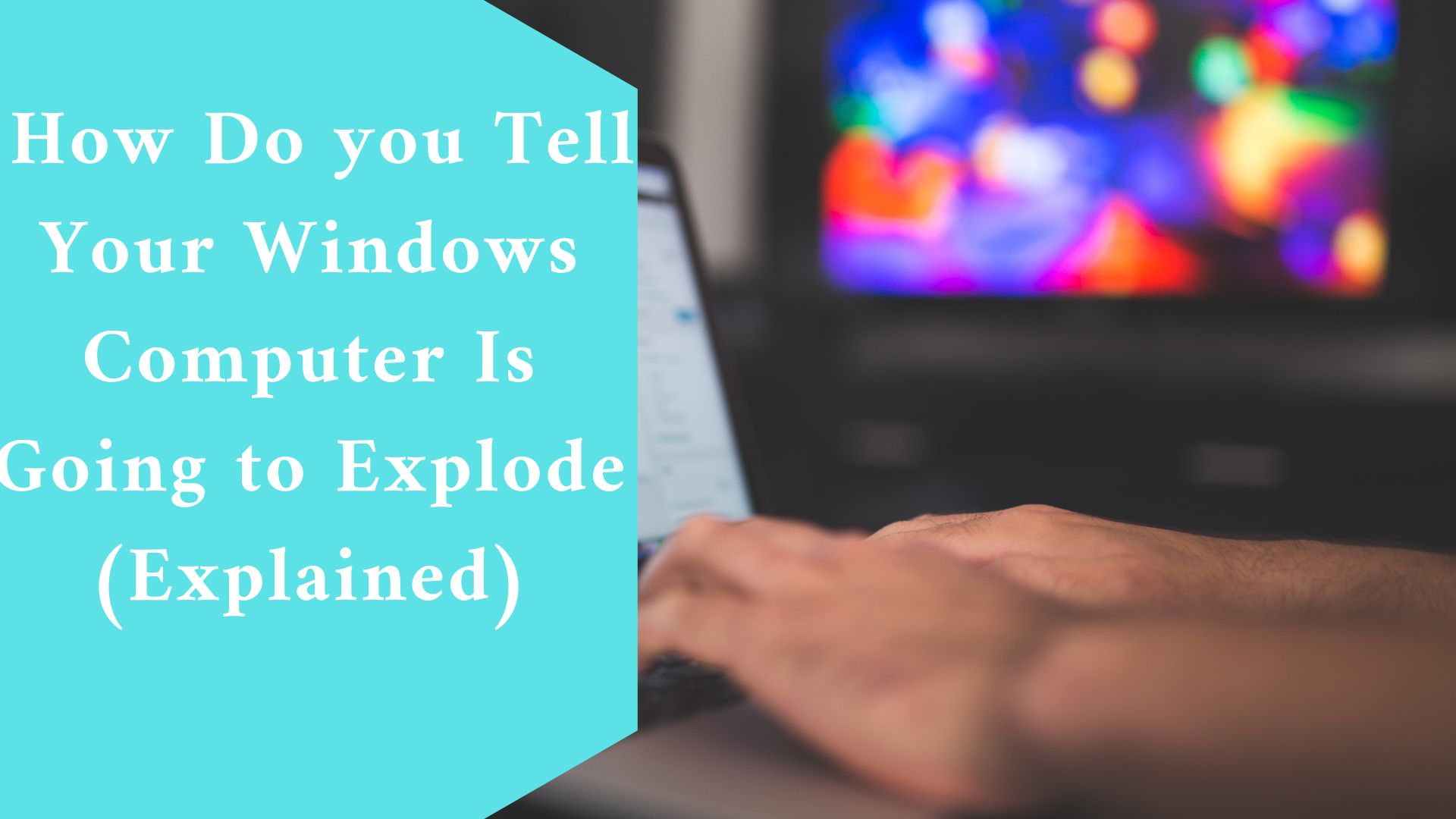Computer batteries may not venture out very often, but when they do, you must be cautious. Regardless of their quality or price, computer does not survive forever, and this is a well-known fact, or so we hope. Viruses, Windows troubles, and malware scans are all serious issues, but nothing tops a battery explosion.
PC batteries can explode for a variety of reasons, the most common of which is overheating. You may have noticed an increase in heat while using your laptop, but have you ever wondered where it originates from? Or what habits caused such a problem? People frequently disregard computer overheating, which is one of the reasons their laptop batteries explode.
If you have a Lithium-ion battery, the possibilities of your computer exploding are increased because these batteries are quickly harmed by intense storage temperatures above 60 degrees Celsius, manufacturing flaws, overcharging, or product tampering.
Accidental exposure to fire or a spark can further increase the battery’s explosion danger, so keep these elements in mind before blaming the manufacturer or any external circumstances.
Here are some of the most typical warning signs of a potential battery explosion, as well as useful advice for preventing such a disaster, so remain tuned so you don’t miss anything vital.
Your Windows PC frequently overheats
We’re sure you can relate to this, especially if your laptop occasionally causes a burning sensation on your legs when you’re using it. It’s vexing, but aside from the irritating sensation, you should consider the long-term damage your computer could sustain if left uncooled.
The various hardware components can become permanently damaged. Slower speed and lesser performance are two of the most obvious implications of overheating, but a complete shutdown is also possible. Some systems are engineered to smash as a last resort to avert more catastrophic harm, such as a battery explosion.
The easiest method to avoid such issues is to maintain your computer’s temperature low and steady. The remedy for laptops is to avoid placing them on plush surfaces and instead select a flat surface. It’s because such surfaces can obstruct ventilation, slowing the air passing through laptop components and trapping heat within. To keep things cold, choose between a lap cooler and a desk, depending on your demands.
Things are usually simpler with desktop PCs. Just make sure no blankets are covering the fan vents and have a professional clean the inside of your computer regularly. It’s critical not to allow dust, liquids, and filth to accumulate because they might overheat your PC’s components and force its fans to work harder.
In the worst-case scenario, your computer’s battery explodes, but let’s not go there. You won’t have to worry if you take good care of your computer and prevent this calamity in advance.
But what if this occurrence occurs at work? Working in front of a computer has become both a convenience and a difficulty due to the multiple hazards involved.
One of the major dangers is the explosion of a computer battery. You certainly don’t want to think about it, but if you are the victim of such an occurrence at work, you must take the necessary procedures.
To begin, it is your employer’s responsibility to provide all necessary working circumstances, including flawlessly functioning computers with regular updates and upgrades, so you have the right to compensation if a computer explodes in front of you.
Injury At Work Claims Expert always recommends engaging with a skilled personal injury lawyer who can assist you in receiving the maximum compensation for your injuries, whether physical or psychological.
Related video here ????????????
Your computer may slow down.
Everyone has had to cope with a slow computer at some point in their lives, but is this conceivable with today’s technical advancements? It is! If you don’t take care of your computer, it will likely run slower.
Some of the most prevalent causes of poor computer performance include unused software or bloatware and excessive hard disc storage, but overheating the battery is also a prominent source of unresponsive and sluggish functionality. This could be a warning sign that your computer is about to crash, so you must act quickly to avert tragedy.
When your hard drive can no longer hold any more files, your PC will take longer to complete specific activities, which is normal. Isn’t this true of the human body? When we work too hard, we become fatigued as well.
Running a virus scan is the first step toward a faster PC. This action is dependent on whether you are using Windows or macOS. In the first instance, you must launch the Task Manager. If you can’t find it, look for its name in the taskbar. In this scenario, you must launch the Activity Monitor.
The same thing applies here: if you don’t have this program, look for it in Spotlight. Once launched, the software will display a list of currently active programs, some of which will be more familiar to you than others.
If the malware scan yields no findings and returns a blank screen, shut down Windows and then restart these programs. Non-malicious buggy programs may be the perpetrators, so proceed with caution.
Finally, you may speed up your computer by deleting programs and software that you no longer use. You’d be surprised at how beneficial PC decluttering can be.
Other significant indicators that your PC battery is about to explode:
- The laptop is not charging properly.
- The device has been severely damaged.
- The laptop or desktop computer emits a foul, unpleasant odor.
- Smoke can also be detected. In this instance, act quickly and seek expert assistance.
- The device is rapidly growing, or the seams are bursting open.
Final thought
It’s difficult to think that computers explode, but they do when they’re not properly maintained. Consider checking in on your Windows device frequently to avoid a disaster.
How Do You Fix Laptop’s Battery that says “plugged in charging” (Explained)

